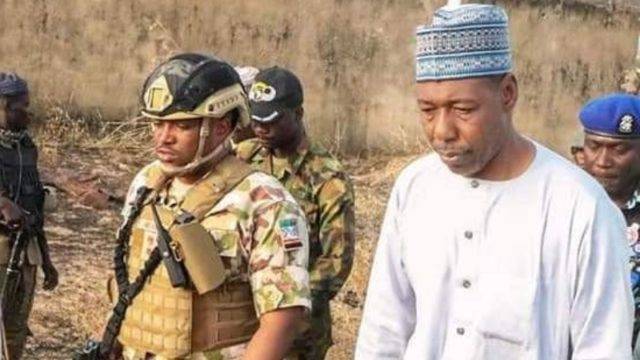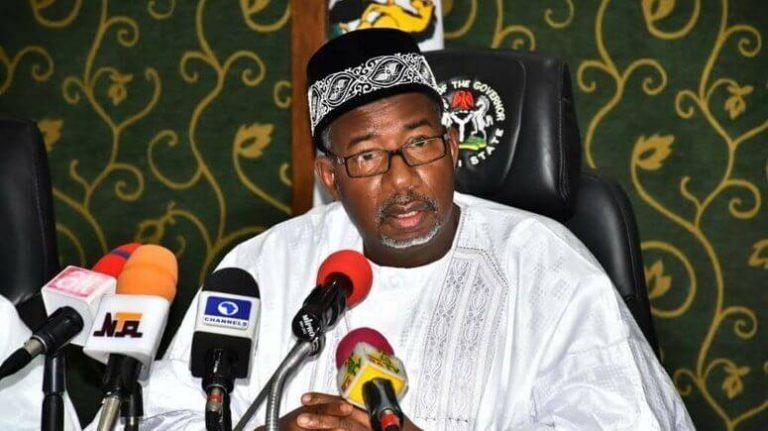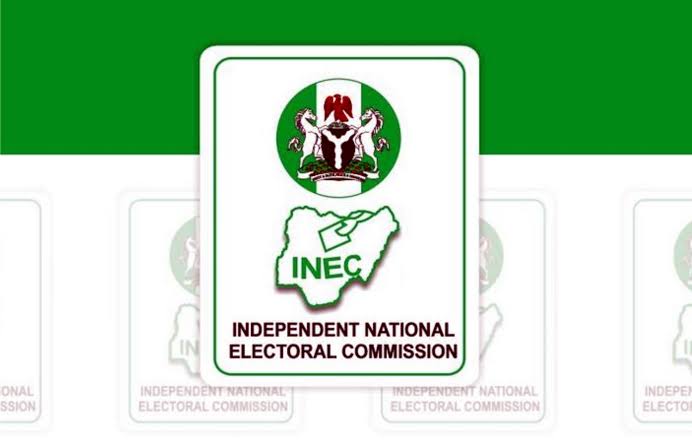Column | Zulum, governance and the rising shadows in the Northeast
By Abdulqadir M. Habeeb
What does it mean to lead for the people in an age where capital trumps compassion? Where governance is less about service and more about spreadsheets, bottom lines, and the transactional nature of power? We live in a time when the wealth of nations is measured in GDPs, but the well-being of citizens is an afterthought, a casualty of boardroom politics and self-serving bureaucracies.
The streets tell a different story from the official press releases. In these streets from Gwoza to Konduga, markets open at dawn, but customers are fewer. Mothers count naira notes that no longer stretch. Fathers weigh the cost of dignity against the price of survival. The youth stand at the crossroads of despair and defiance, wondering if their dreams can survive the harsh arithmetic of modern governance.
And then, in the midst of this, a man walks. Not in armored convoys that sweep past the struggling masses, but in the dust and sweat of the common people. He listens. He questions. He demands accountability not just from his subordinates, but from himself. That man is Babagana Zulum.
The capitalist ethos: Governance as business, people as pawns
In many places, leadership has become less about stewardship and more about profit margins. Public service is now an investment portfolio. And the people? Shareholders without voting rights. Policies are no longer designed to lift the vulnerable. Instead, they are crafted to accommodate elite interests, wrapped in the language of economic growth and foreign direct investment.
But who truly benefits? The child in the dilapidated classroom in Monguno? The farmer displaced by insecurity in Dikwa? The pensioner in Benisheik whose years of service amount to nothing in the face of unpaid entitlements? In an era where everything has a price tag, including justice, healthcare, and education, governance often mimics capitalism at its most ruthless.
Yet, in Borno, a different narrative is unfolding.
Zulum: A disruptor in the age of transactional leadership
Zulum is an anomaly, an inconvenient presence in a system that thrives on inertia. While many leaders govern through carefully curated social media engagements and choreographed public appearances, he works in the trenches. He walks into hospitals unannounced, exposing inefficiencies not through committees but through his own eyes. He demands teachers be present in classrooms, not because the cameras are rolling, but because children’s futures depend on it.
This is not leadership as spectacle. It is leadership as responsibility.
His approach is unsettling to those accustomed to the slow dance of bureaucracy. He fires lax officials without hesitation, bypasses endless red tape, and insists that governance should be as swift and effective as the challenges it seeks to address. He is not waiting for history to judge him. He is shaping it in real time.
But can one man change a system that resists transformation?
Beyond symbolism: The substance of people-centric leadership
Symbolism is powerful, but it is not enough. True leadership is measured in policies that endure beyond the tenure of the leader. Zulum’s commitment to education, security, and social welfare is not just about optics. It is about building a foundation that will outlive his governorship.
He has prioritized the welfare of teachers and security personnel, understanding that no society thrives when those who educate and protect are neglected.
His direct engagement with displaced persons in Ngala and Marte has redefined government response to humanitarian crises, shifting it from mere handouts to structured rehabilitation.
He has tackled corruption not through empty rhetoric but through decisive action, sending a clear message that leadership is not a personal empire but a collective duty.
Yet, critics question. Is he too idealistic? Can one man shift the tide of a deeply entrenched system?
A call to conscience: The road not yet taken
Zulum’s leadership is not just about him. It is about the possibility of a different kind of governance. If he can be the exception, why can’t others follow suit? If people-centric leadership is possible, why is it so rare?
Perhaps the real question is not about Zulum, but about us. What do we demand of our leaders? What standards do we set for those who hold power? Do we reward theatrics over substance, or do we insist that leadership must first and foremost be about the people?
In the end, history will judge our leaders. But it will also judge us, the governed. For in every age, societies get the leadership they tolerate.
And so, as we navigate this era of unchecked capitalist ethos where human dignity is often the first casualty, the choice remains ours. Do we accept leadership as mere economic management, or do we insist on leadership as service?
A gathering storm: Apprehension in the face of rising threats
In Borno, peace is never assumed, it is negotiated daily, with grit, memory, and prayer
Yet, for all the good Zulum has done, for all the schools rebuilt, systems cleaned, and people empowered, an unsettling wind is beginning to blow once more across the Northeast. The quiet hum of progress is now being interrupted by the crackle of gunfire in the distance. Reports of renewed Boko Haram activity are no longer whispers but worrisome headlines.
Maiduguri, that battle-worn heart of the region, begins to stir with old fears. Camps that had started to empty now brace again. Farmers in Bama glance over their shoulders. Children in Askira-Uba flinch at loud sounds. The specter of insurgency, once beaten back with fire and will, appears to be inching forward with venomous resolve.
It is a cruel irony. Just when the promise of people-centric governance was beginning to yield fruits, the land is being stalked again by the same shadows that delayed its blooming. Zulum, ever calm yet visibly concerned, has not hidden his apprehension. Neither have the people. The memory of past devastations is too fresh, too raw, to ignore the signs.
And so, as the Northeast inches toward yet another uncertain curve, the question sharpens. Can progress endure in the face of renewed peril?
If Zulum’s leadership has shown us anything, it is that commitment to the people is not just about peacetime policies. It is about standing firm when the winds shift, about refusing to let fear unravel what has been rebuilt, thread by thread. Now more than ever, he and the stakeholders need more than admiration. They need solidarity, strategy, and swift national attention.
For even the strongest hands cannot hold back a storm alone.
Yet even now, the burden of security remains unrelenting. Just yesterday, Governor Zulum convened a quiet but weighty gathering. Traditional rulers, security chiefs, faith leaders. All present. Not for show. For survival.
The attacks are resurging. Communities whisper again of fear. Zulum, ever direct, did not sugarcoat the moment: “The renewed Boko Haram attacks and kidnappings in many communities, almost on a daily basis without confrontation, signal that Borno State is losing ground.”
But the meeting was not merely for mourning. He spoke of technology. Of strategic adaptation. Of strengthening our security architecture and once more called for the establishment of a Brigade Command in Southern Borno. “It is only when there is security that there will be development,” he said, as though reminding the room and himself, of a simple truth that should never have needed repeating.
Most striking, however, was his call to the people: “You cannot gain victory over Boko Haram unless you as the indigenous people in the areas stand to defend yourselves.” Not a call to arms, but a call to courage.
And so we remember. And we pray.
That this land of quiet strength and deep scars will never again return to the days when silence meant death. That our unity, our resolve, and our faith will rise higher than fear. That the shadows that once swallowed whole towns will never again find room to stretch.
Amen.
There are no shortcuts to peace. No fast-forward button to healing. Only the long, deliberate work of rebuilding. Zulum seems to understand this. And perhaps that is the quiet difference, he doesn’t just ask for hope. He helps make space for it.
‘Posterity shall vindicate the just’
Habeeb is a tech, strategy and innovations consultant. He keeps a periodic column here and can be reached via habeebajebor@gmail.com.






